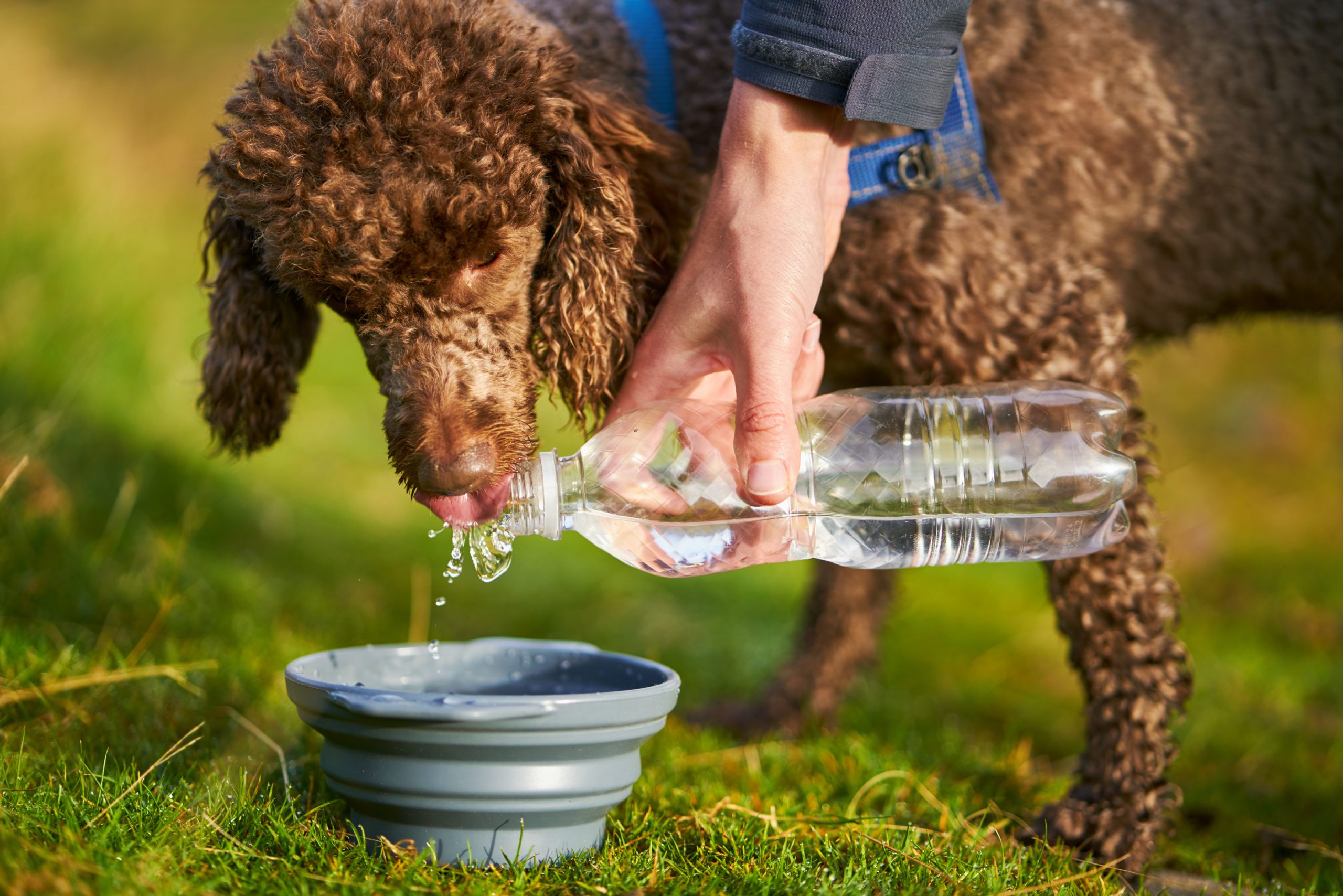
5 Summer Pet Safety Tips
Pet Hydration Month
July is Pet Hydration Month, marking one of the most dangerous times of year for pets. With so many things to do in the summer months, it’s easy to overlook your pet’s water bowl. But keeping your dog or cat well hydrated during the dog days of summer is essential for their health and well-being. Whether they’re splashing around in a kiddie pool on a hot summer day or just lounging on the couch, there are several ways you can help keep your pets cool and hydrated during the hot weather. Here are our top five summer pet safety tips:
- Pets do not sweat like humans do, meaning they lose water through their lungs and the pads of their paws. Make sure your pet has plenty of fresh water available along with a shady place to shelter from the sun. Clean all pet water bowls regularly.
- Keep your pet indoors when temperatures are the highest (generally between 10 a.m. and 5 p.m.). Better yet, keep them indoors during the daytime and give them regular supervised potty breaks, and take your walks in the early morning or well after dark when the pavement is cooler.
- Have several water bowls around your house so that your pet always has access to fresh water when you’re away from home. You might also consider installing a pet water fountain or another type of automatic watering system to encourage your pets to drink more regularly, as the constantly flowing water is better oxygenated and fresher.
- Give your pet ice cubes or frozen treats. Ice cubes and frozen treats are great ways to cool down your pet on a hot day, and they feel like a special treat! Add some flavor by mixing chicken or beef broth with water and freezing it in old-fashioned ice cube trays, silicone molds, or other freezer-safe containers.
- Watch for signs of dehydration—dry lips, dry gums, and dry eyes, reduced urine output, lethargy, panting, decreased appetite, and vomiting or diarrhea. Contact your veterinarian immediately if you notice any of these symptoms in your pet.
Follow these Pet Hydration Month tips this summer and your pet will stay happy, healthy, and hydrated. Finally, remember to keep an eye on senior pets and pets with other medical conditions that may be more susceptible to heat stress than other animals. If your pet is showing any signs of dehydration or unusual changes in behavior, call your veterinarian right away.
Need a great veterinarian right in your neighborhood? AZPetVet has 22 locations around the Valley, so there’s sure to be one near you.

